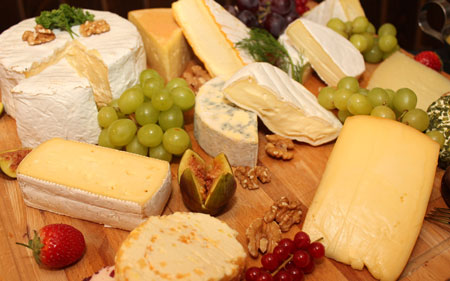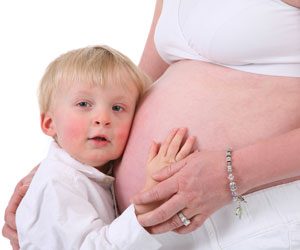 What food is safe to avoid listeria during pregnancy? Listeria is a bacteria that is found in nature and lives in some foods. Sources of Listeria include most animals, soil, vegetation and sewerage. Because of this, Listeria can easily enter our food chain. An infection with Listeria can cause mild ‘flu-like’ symptoms, urinary tract infections or even quite serious illness. In adults who have an impaired immune system, Listeria can cause illnesses such as meningitis, pneumonia and encephalitis. Listeria monocytogenes are the bacteria that cause Listeria. In pregnancy, this bacteria can pass across the placenta and reach the baby. Listeria during pregnancy can cause abortion, premature rupture of membranes, premature birth and very sick babies. Listeria infections are not new. However, we have only known since the 1980’s that through food, Listeria can pass to humans.
What food is safe to avoid listeria during pregnancy? Listeria is a bacteria that is found in nature and lives in some foods. Sources of Listeria include most animals, soil, vegetation and sewerage. Because of this, Listeria can easily enter our food chain. An infection with Listeria can cause mild ‘flu-like’ symptoms, urinary tract infections or even quite serious illness. In adults who have an impaired immune system, Listeria can cause illnesses such as meningitis, pneumonia and encephalitis. Listeria monocytogenes are the bacteria that cause Listeria. In pregnancy, this bacteria can pass across the placenta and reach the baby. Listeria during pregnancy can cause abortion, premature rupture of membranes, premature birth and very sick babies. Listeria infections are not new. However, we have only known since the 1980’s that through food, Listeria can pass to humans.
An infection with Listeria can be easily missed as it often presents with vague symptoms. A blood test or a test on the amniotic fluid can identify a Listeria infection. You can treat listeria with certain antibiotics. If a baby contracts a Listeria infection it can become extremely sick with respiratory problems or meningitis. The baby can even die. Listeria infection is quite rare in Australia, but when it occurs in pregnancy it can have serious complications. It is, for this reason, that information is now available to pregnant women so that they can make safe choices on the foods to eat during pregnancy.
The bacteria that cause Listeria is sensitive to heat. So by cooking food well, you are able to destroy it. When cooking meats ensure that the meat is cooked right through. Rare meat is not recommended. If you use the microwave to reheat, ensure that the food is steaming hot right through to the centre. While heat destroys Listeria, refrigeration does not. Listeria is one of the few bacteria that are able to grow on food in the refrigerator. So if you stored the food for longer than twelve hours after cooking – it is best that you do not eat it. Also, avoid chilled ready-to-eat foods.
What steps can I take at home to avoid the risk of catching Listeria during pregnancy?
The best way to avoid Listeria is by using good food hygiene. The first step is washing your hands before preparing any food. Before eating raw fruit and vegetables, you should thoroughly wash them. Food should be well cooked; no raw or partially cooked meats and seafood should be eaten during pregnancy. Food should be served piping hot. Do not eat lukewarm food. If using the microwave ensure that the food is well heated through to the centre.
Hot soapy water should be used to wash all food utensils. It is particularly important to wash chopping boards and knives after preparing raw food. Proper storage of food is essential. Store all your cooked food separately from uncooked products. Make sure that the raw food cannot drip onto cooked food. If you have cooked leftovers, place them straight into the fridge once they have stopped steaming (do not let food cool on the bench). Use all leftovers within 12 hours of cooking or alternatively freeze them for later use. Ensure that you keep that cooled food below 5 degrees Celsius. Also do not eat food that has passed its used by date.
My partner and I eat out a lot. I have heard that takeaway food is not safe during pregnancy. Is this true?
It is important to be careful when buying takeaway food. If it is fresh and piping hot it is safe to eat. If it is lukewarm – avoid it. A lot of takeaway food is cooked and then stored under warming lights until it is purchased. It is wise to avoid this type of food. If possible, you should avoid salad bars and smorgasbords. If having to eat from a smorgasbord, choose from the hot food only. By being careful when eating out, you can reduce the risk of eating foods that may be contaminated with Listeria. Do not eat food if you are uncertain about the preparation and/or storage of the food. If you are sensible you can continue to enjoy eating out.
What foods should I avoid during pregnancy?
There are certain foods that are at high risk of Listeria contamination. The foods to avoid during pregnancy include:
- Soft white cheeses eg. Ricotta, brie, camembert, blue vein and fetta
- Pate
- Unpasteurised dairy products
- Cold meats
- Dried/fermented sausages
- Raw seafood eg. Oysters, sashimi
- Smoked seafood (canned is okay)
- Pre-packed and prepared salads
- Soft serve ice-cream
What foods are safe to eat to avoid listeria during pregnancy?
Freshly prepared and freshly cooked foods are the safest. It is important to eat a well-balanced diet that contains plenty of fresh fruit and vegetables, bread, cereals, meat, fish, eggs, lentils and nuts. Ensure to have well-cooked meat. All hot food should be piping hot. The following foods are safe to eat during pregnancy:
- Washed fruit and vegetables
- Homemade salads
- Hard Cheese
- Processed cheese
- Canned foods
- All meats – thoroughly cooked, hot and fresh
- Pasteurised dairy products
Reference List
- Australian New Zealand Food Authority. (?). [Listeria and pregnancy]. Brochure.
- Bennett, V. R., & Brown, L. K. (Eds.). (1993). Myles textbook for midwives (12th ed.). London: Churchill Livingstone.
- Beth (surname unknown). (2000, June). [Listeria Alert]. Ozmidwifery e-mail list.


Recent Comments